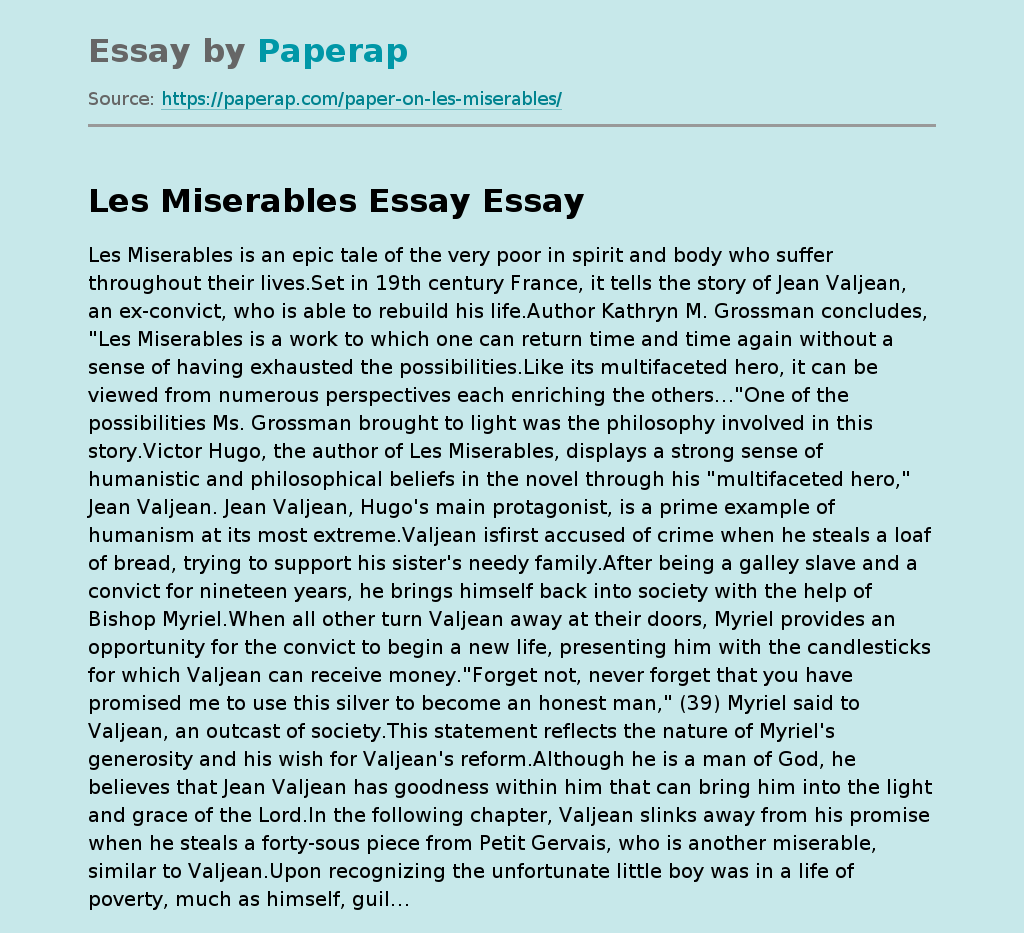Les Miserables Essay
Les Miserables is an epic tale of the very poor in spirit and body who suffer throughout their lives.Set in 19th century France, it tells the story of Jean Valjean, an ex-convict, who is able to rebuild his life.Author Kathryn M. Grossman concludes, “Les Miserables is a work to which one can return time and time again without a sense of having exhausted the possibilities.Like its multifaceted hero, it can be viewed from numerous perspectives each enriching the others…”One of the possibilities Ms.
Grossman brought to light was the philosophy involved in this story.Victor Hugo, the author of Les Miserables, displays a strong sense of humanistic and philosophical beliefs in the novel through his “multifaceted hero,” Jean Valjean. Jean Valjean, Hugo’s main protagonist, is a prime example of humanism at its most extreme.Valjean isfirst accused of crime when he steals a loaf of bread, trying to support his sister’s needy family.After being a galley slave and a convict for nineteen years, he brings himself back into society with the help of Bishop Myriel.
When all other turn Valjean away at their doors, Myriel provides an opportunity for the convict to begin a new life, presenting him with the candlesticks for which Valjean can receive money.”Forget not, never forget that you have promised me to use this silver to become an honest man,” (39) Myriel said to Valjean, an outcast of society.This statement reflects the nature of Myriel’s generosity and his wish for Valjean’s reform.
Although he is a man of God, he believes that Jean Valjean has goodness within him that can bring him into the light and grace of the Lord.In the following chapter, Valjean slinks away from his promise when he steals a forty-sous piece from Petit Gervais, who is another miserable, similar to Valjean.Upon recognizing the unfortunate little boy was in a life of poverty, much as himself, guil…
Les Miserables Essay. (2019, Dec 05). Retrieved from https://paperap.com/paper-on-les-miserables/

